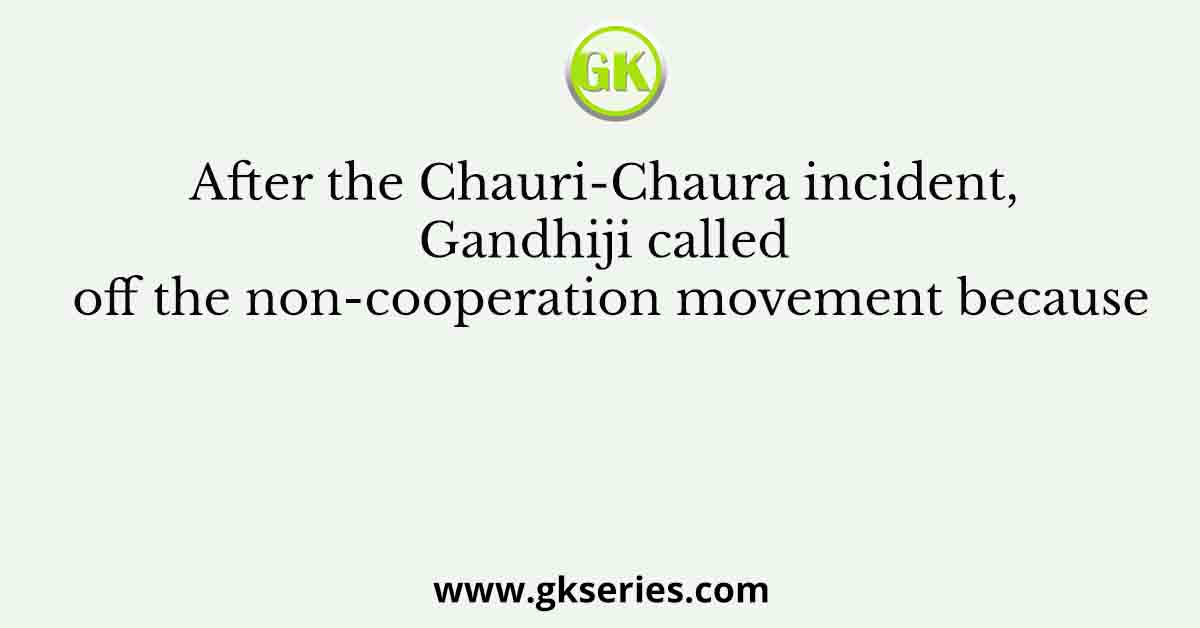
Q. After the Chauri-Chaura incident, Gandhiji called off the non[1]cooperation movement because
(a) the people were fed up with the movement.
(b) he did not want the movement to turn violent.
(c) he realised that the government had almost crushed the movement.
(d) the masses did not display the desired enthusiasm.
Ans: (b) he did not want the movement to turn violent.
Explanation: After the Chauri-Chaura incident, Gandhiji called off the non-cooperation movement because (b) he did not want the movement to turn violent. The Chauri-Chaura incident occurred on February 5, 1922, in Chauri-Chaura, Uttar Pradesh, during a protest march as part of the non-cooperation movement. The protest turned violent, and a mob attacked and set fire to a police station, resulting in the death of 22 police officers. Upon hearing of the incident, Gandhiji was deeply disturbed and felt that the movement had taken a violent turn, which went against the principles of non-violence that he strongly advocated. In response, he called off the non-cooperation movement, as he believed it was necessary to maintain non-violence as the guiding principle of the struggle for independence.





